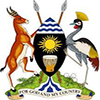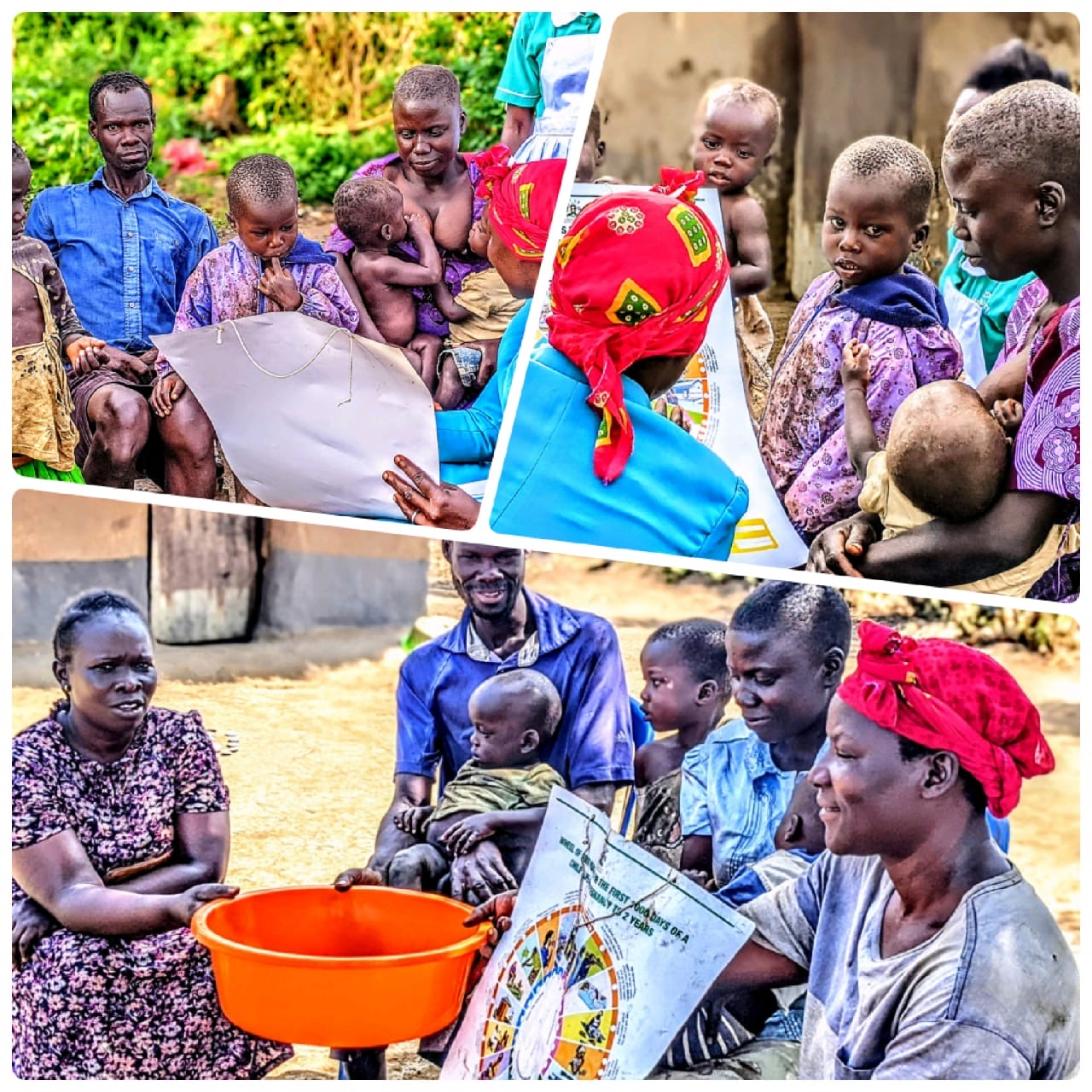In the corridors of district and sub-county offices, the resilience of the integrated rollout manifests in tangible shifts.
“We’ve had the lowest number of Malaria cases this month considering the season being deemed a malaria one,” said Alela Constance, the DHO, Dokolo District.
Across communities, signs of transformation are, evidenced by the adoption of key interventions: the embrace of mosquito net use, the clearing of bushes, and enhanced male participation in household and health management, among others – all highlighted by the Wheel of Good Practices as pillars of progress.
Within Kangai Sub-County, Dokolo District, one household attested to the transformative potential of integrated MAAM activities. Jimmy Owinyi, a man of indestructible spirit is married to the devoted Ikalanyi Rosaria and blessed with three children. His humble home was what one would use to define adversity, plagued by malaria and malnutrition eating away at his children. Lacking basic amenities such as a latrine, the family relied on the goodwill of neighbours for their most basic needs. Financial woes were the centre of their struggles, as they had been using all their savings to constantly tend to the recurring malaria. Jimmy’s disability – a semi-functional arm was a constant reminder of life’s hardships.
Recognized as a vulnerable household, they were enrolled among the Obulamu households in Kangai in November 2023. In four months, the transformation witnessed was nothing short of miraculous. As the USAID/SBCA team entered their compound, the once-pale faces of Jimmy and Brenda’s children now radiated with health and vitality, their laughter warmed the home as they leaped, knocking over stools joyfully. Observing the couple tirelessly toiling away to build a wall around their pit latrine, it was evident that change had taken root.
The compound once shrouded in neglect, was now cleared, with sun-drying chickpeas in the compound. Inside their home, the mosquito net hangs up, as a symbol of protection from the bite, while the kitchen was piled with after-lunch utensils.
This is merely the beginning of Jimmy and Brenda’s journey towards transformation. They have newfound hope and resilience and embraced further opportunities for growth by joining the household SACCO – the Obulamu Mothers Village Savings and Loan Association. Rosaria in a bid to lay stability and certainty, took up the implant as her family planning choice With each step forward, the couple ventures closer to realizing their dreams, empowered by their ability to take charge of their life. SBCA continues to empower communities to take charge of their health and accordingly their way of life.
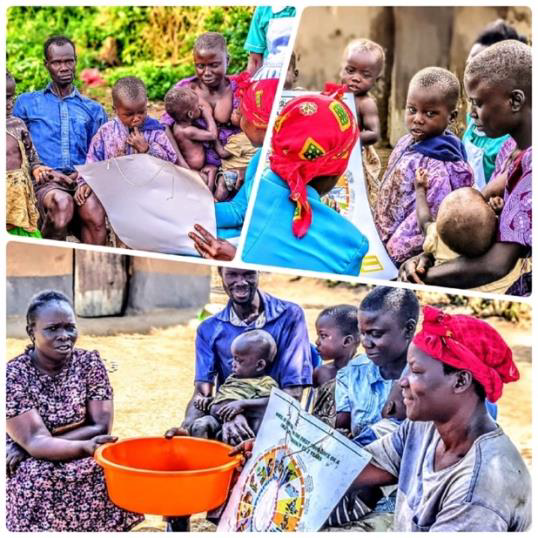
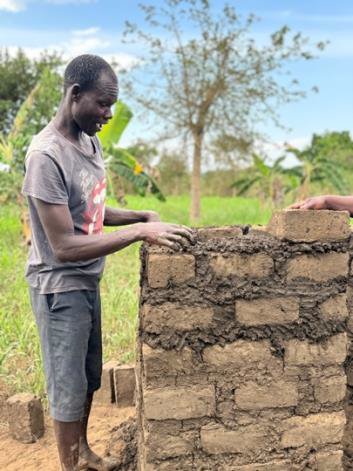
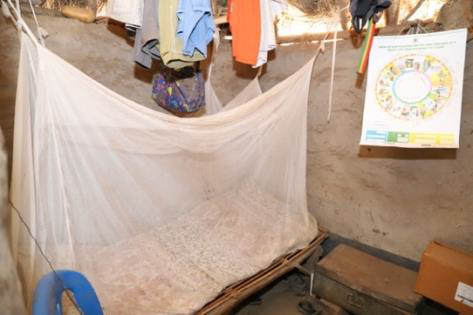
Pull-Out Quote:
“We’ve had the lowest number of Malaria cases this month considering the season being deemed a
malaria one,” said Alela Constance, the DHO, Dokolo District.”
Background Information:
USAID/SBCA, in strategic collaboration with the Ministry of Health, Districts (MOH), and Internal Partners (IPs), is currently spearheading the rollout of the last mile activities in eight high-burden malaria districts and three designated learning districts. The activities are intricately designed to address households exhibiting suboptimal health behaviors across various thematic domains, including Malaria, Family Planning, Maternal Child Health, WASH (Water, Sanitation, and Hygiene), Nutrition, Tuberculosis, HIV, and Gender-Based Violence. Building upon the lessons picked up during the rollout in FY23, the current implementation approach is characterized by its integrated nature. Approaches revolve around intensified interpersonal communication and community engagement.

